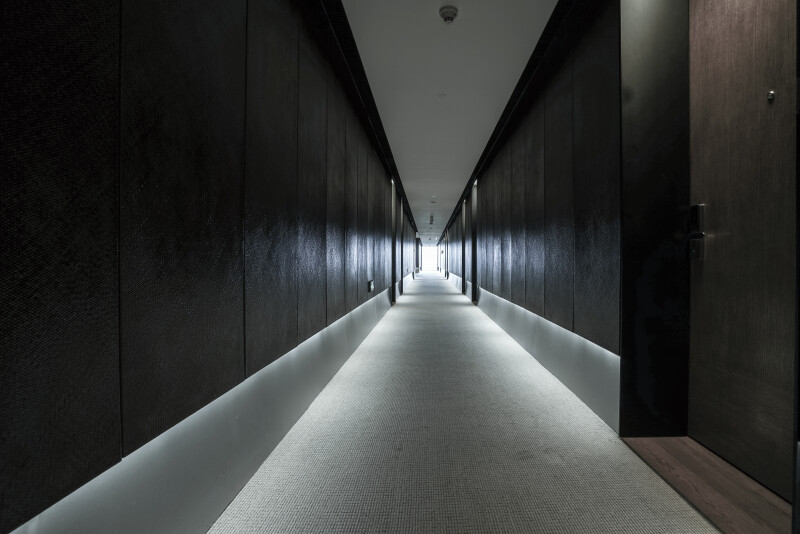Liminal space is a place of transition, a threshold between two points, signaling the end of one time or space, and the beginning of another.

If you aren’t familiar with the term, “liminal space,” my guess is you are well-acquainted with the feeling of being in such a space. It is that in-between experience, the awareness of change without a full picture of what all such change will ultimately mean. As we emerge from the pandemic, we find ourselves navigating what was, for lack of a better word, normal, and what is beginning to emerge as a new normal. We aren’t quite clear on what our experience of life will be or contain. We are in-between, in liminal space.
As a denomination, we have been in liminal space for several years. We have stood at the threshold of our historic perspective while peering into a space that invites us to shift that perspective, especially around our understanding of human sexuality.
To clarify, our denomination has been poised to separate. We, as a denomination, have irreconcilable differences related to human sexuality, particularly around the ordination of LGBTQIA+ persons and the role of the church in consecrating unions between same-gendered persons. The last time we found ourselves with such irreconcilable differences was over our understanding of slavery, which led to a separation of the denomination in 1844. One of the historic strengths of our Wesleyan tradition has been our ability to hold space for a wide range of perspectives. Simply stated, we are unified in our understanding that Jesus is Lord and allow room for divergent opinions on most anything else. This diversity of perspectives has long been a gift for all who identify as Methodists. That is certainly true here at First United Methodist Church of Hurst.
The United Methodist Church is known as a connectional system. There is no pope or supreme leader for the church. Instead, we gather a representative body every four years to establish the budget for the general church as well as to amend our rules or create new rules. This representative body includes an equal number of clergy and lay persons from across the world (not just within the United States), elected by each conference, and gathered in what is called General Conference.
At our last regularly scheduled General Conference, in 2016, a special commission was established (The Commission on the Way Forward) to help guide the church through the challenges of resolving our differences. A “Called” General Conference was held in 2019, specifically around the work of this Commission. The concerns of all perspectives were not adequately resolved at this Called session.
The next scheduled General Conference was slated to be held in May 2020. In January 2020, an announcement was made regarding a proposal that would allow the church to split amicably. Those who believed that proposed changes to our theological stance on human sexuality (ordination and marriages) to be incompatible with our faith understanding would be allowed to graciously leave the UMC, form a new denomination within the Wesleyan heritage, receive funding to help with this endeavor, and remain involved in sharing in the resources of our General Agencies. At this point, we were firmly standing in that liminal space, that threshold between who we were as a denomination and who we may become as we endured separation. Due to the pandemic, this May 2020 Conference was postponed until August 2021…and then postponed, again, until August 2022.
Last week, the Commission on General Conference (not to be confused with the Commission on a Way Forward – think planning team), announced that this meeting was postponed until the next regularly scheduled General Conference in May 2024 (remember, it meets every four years). This decision was made in part due to the existing travel limitations brought on by the pandemic (many delegates must travel from outside of the United States) and due to the inability of many delegates to travel as a result of the war in Ukraine. While they could have delayed it until 2023, by church law there we would still be required to hold a General Conference in 2024. The expense of holding General Conference significantly impacted the decision to not have two such gatherings one year apart.
In other words, we are still standing in liminal space and will be for another two years. Shortly after the announcement was made about General Conference, a new Wesleyan denomination known as the Global Methodist Church announced they would launch in May 2022. This means local congregations who are prepared to step away from the United Methodist Church will have a new denomination to with which to align. There have been United Methodist churches that have already left the denomination to join with other denominations. None of the churches in our conference have left the UMC. At our upcoming Annual Conference in June (this is an annual business meeting specifically for our conference), that body will likely be considering a request from one, perhaps two, congregations to leave the UMC. While I do not know the names of the church or churches that may be making that request, this information will likely be included in the Preliminary Report that the conference publishes in May, prior to Annual Conference. Our church has not begun conversations regarding such a decision.
As our local United Methodist Church remains in this liminal space, we will use this time to explore and wrestle with our particular questions around our understanding of human sexuality from a theological perspective. In order for us to do this well, we will need to create safe spaces for us to engage in conversation together. I am working with our staff and will be working with our leadership on creating such spaces.
Very few of us enjoy spending time in liminal spaces. We much prefer certainty. At the same time, liminal spaces can be crucial to allowing God’s Spirit to be at work as we discern what it means for us to venture beyond the threshold. In just a few weeks, we will be making the journey to Jerusalem with Jesus, to the cross on Good Friday. We already know to anticipate the empty tomb on Easter morning. Perhaps we would do well to consider Jesus’ time in the tomb, in that in-between space of life before and life to come, and trust in God to resurrect us – not necessarily back to what we were but bringing us more fully into all that God would have us become.
- Want to learn more about how we got to be United Methodists?
Visit https://tinyurl.com/4u9r7dna - Visit https://tinyurl.com/4zp296md to explore more UMC history.

